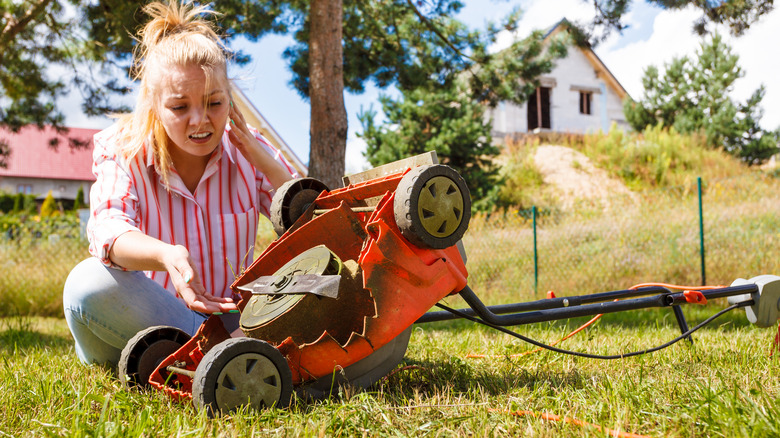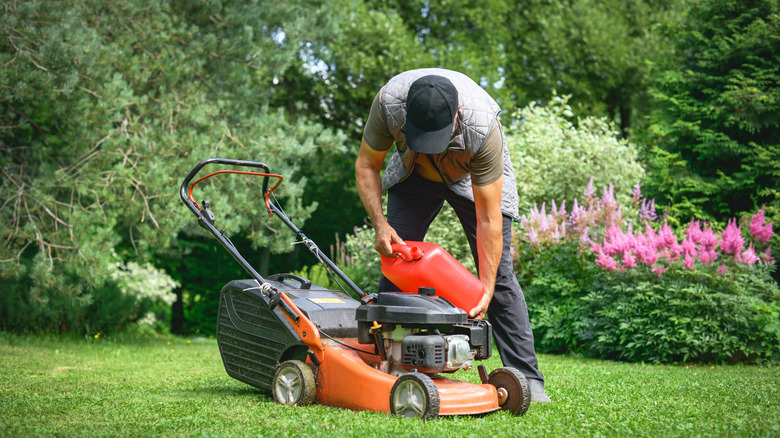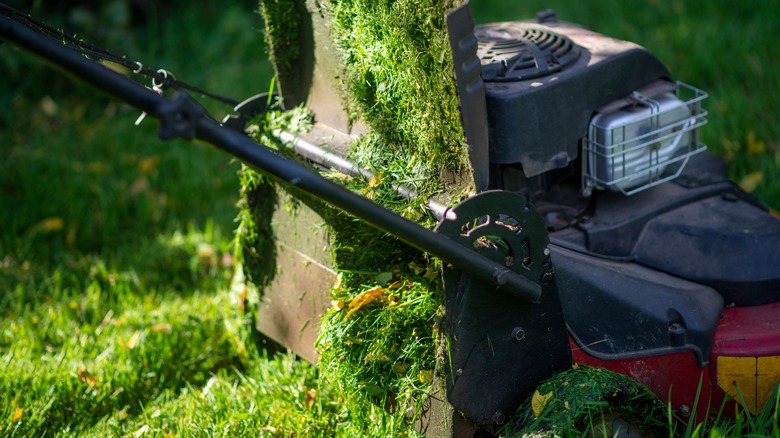Accidental Ways You're Damaging Your Lawn Mower & Causing Expensive Repairs
Maintaining your yard is hard enough work — the last thing that you need is a malfunctioning mower due to recklessness or simple lack of knowledge. Whether you realize it or not, lawn mowers are machines that need to be routinely cared for if you expect them to keep up with the task they are designed for. There are lots of things that can harm your machine, thereby creating a situation where you need to go to a professional to get it fixed or even buy a new mower. But many of the most common mistakes — like overtaxing your machine or not keeping up with simple mower maintenance — can be easily avoided if you know what to watch out for.
Specifically, you may be causing damage by failing to maintain the machine itself, which can manifest in dull mower blades, and falling behind on refreshing the oils that power and lubricate it. Additionally, you might be inadvertently shortening your mower's life by overtaxing it, such as mowing wet grass or attempting to mow over items like sticks and stumps.
Not keeping up with maintenance can ruin your machine
An integral part of a lawn mower is the blade, which is under a lot of pressure to perform. An unsharpened mower blade can leave you with a botched mowing job and can also require additional exertion from the machine. Individuals who live in locations with long, hot summers will need to sharpen their mower blades more often, as their mowing season is prolonged. For most individuals, it is wise to sharpen your mower's blade once it has been used for 20 to 25 hours. A local hardware store may offer mower blade sharpening services, or you can purchase a new blade for about $30.
Neglecting to change your mower's oil and fuel is another harmful habit. Given that the purpose of oil is to keep the various motor components lubricated, the presence of dirty byproducts can render your lawn mower sluggish and result in its early demise. You'll want to change the oil in your lawn mower once a year or after 50 hours of mowing time. As far as gasoline goes, you should commit to emptying your gasoline tank every 30 days or running the mower until it's dry, to prevent residue in the machine. Purchasing and adding in a fuel stabilizer can also extend the life of the gasoline up to two years. Additionally, air filters, spark plugs, and belts in a mower also need to be replaced or serviced routinely for the best performance.
Overtaxing your lawn mower can also cause damage
Even if you're checking all the boxes required to keep your mower operating perfectly, you might be making mistakes on the turf that are severely damaging your machine's integrity. A seemingly innocuous error is using your mower when the grass is wet. Not only does wet grass create more resistance for the mower but it can also cause extra moisture to cling to the machine, which may lead to rust over time. If you have to mow over wet grass, remember to wipe down and dry the mower afterward (using an electric blower can prove helpful in clearing out wet grass from the mower's nooks and crannies).
Accidentally mowing over tree stumps, mulch, rocks, or other non-grass items is an easy mistake to make but should be avoided at all costs. In addition to being dangerous to the individual pushing the mower, running over these items can cause costly damages to a mower's blade or crankshaft. In order to prevent such a disaster from occurring, it's a good idea to walk your lawn before beginning to mow; remove any large sticks, rocks, or other debris you may find, and make note of any protruding tree roots so you can steer clear of them.


